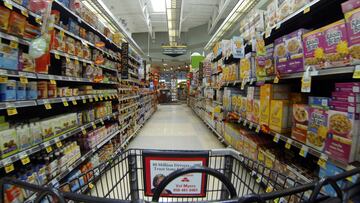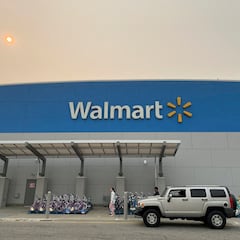Why is the government trying to block largest supermarket merger in history?
The FTC is blocking the proposed $24.6 billion merger between Kroger and Albertsons citing concerns about the potential impact on consumers.


The US government is putting the brakes on a historic deal. The Federal Trade Commission (FTC) is calling Kroger’s acquisition of Albertsons “anticompetitive” and has giled a lawsuit to try and break up the potential union.
This move comes amid years of fast-rising food prices and increasing consolidation within the grocery sector. The FTC’s primary concern is the potential for reduced competition, arguing that the combined entity would hold a dominant position in certain regions, eliminating the competition currently offered by two different companies. This, they claim, could lead to higher prices for consumers as the merged company would face less pressure to keep costs competitive.
Protecting Consumers or Stifling Growth?
Beyond pricing, the FTC also raises concerns about a potential decline in product quality and choice. With reduced competition, consumers might face fewer options and potentially encounter lower quality products if the merged company faces less pressure to innovate and improve offerings.
The Kroger/Albertsons deal is a rotten egg. Here's why it should be blocked by the FTC. pic.twitter.com/MzrF02kPht https://t.co/wMiV6spDdS
— Robert Reich (@RBReich) February 20, 2024
“Concentration in grocery retail has already caused food prices to skyrocket,” said Stacy Mitchell, co-executive director at the Institute for Local Self-Reliance, a nonprofit advocacy group for independent businesses. “This merger would have undoubtedly led to even more consolidation among processors and the closure of independent grocery stores, furthering the proliferation of food deserts in underserved rural and Black and brown communities across the country.”
The potential impact on workers within the industry is another concern. The FTC believes that with fewer competitors, the merged company might have more leverage in negotiating wages, benefits, and working conditions.
“Huge employers merging so they can use their power to lay off workers or hold down wages is just as troubling as sellers combining to fix prices higher,” said Harris, who served as the Biden administration’s top labor adviser until 2022. “In both cases, working people are worse off.”
BREAKING: The FTC has sued to block the $25 billion Kroger-Albertsons merger.
— More Perfect Union (@MorePerfectUS) February 26, 2024
They've stopped these corporate giants from forming the biggest supermarket chain in the country.
This will save thousands of jobs, and stop the price of your groceries from skyrocketing even more. pic.twitter.com/vFiq4uce2J
Related stories
However, Kroger and Albertsons disagree with the FTC’s assessment. They argue that the merger would allow them to compete more effectively against larger players like Walmart and Amazon. Walmart is currently the largest US supermarket by market share, over 25% according to Forbes. Costco is second with 7.1%, followed by Kroger with 5.6%. Proponents of the merger believe this would ultimately benefit consumers by offering more competitive prices and a wider selection of products. Kroger said in a statement that it’s committed to investing $500 million on cost reductions as soon as the merger closes.
The legal battle is ongoing, and it remains to be seen whether the merger will ultimately be approved.

